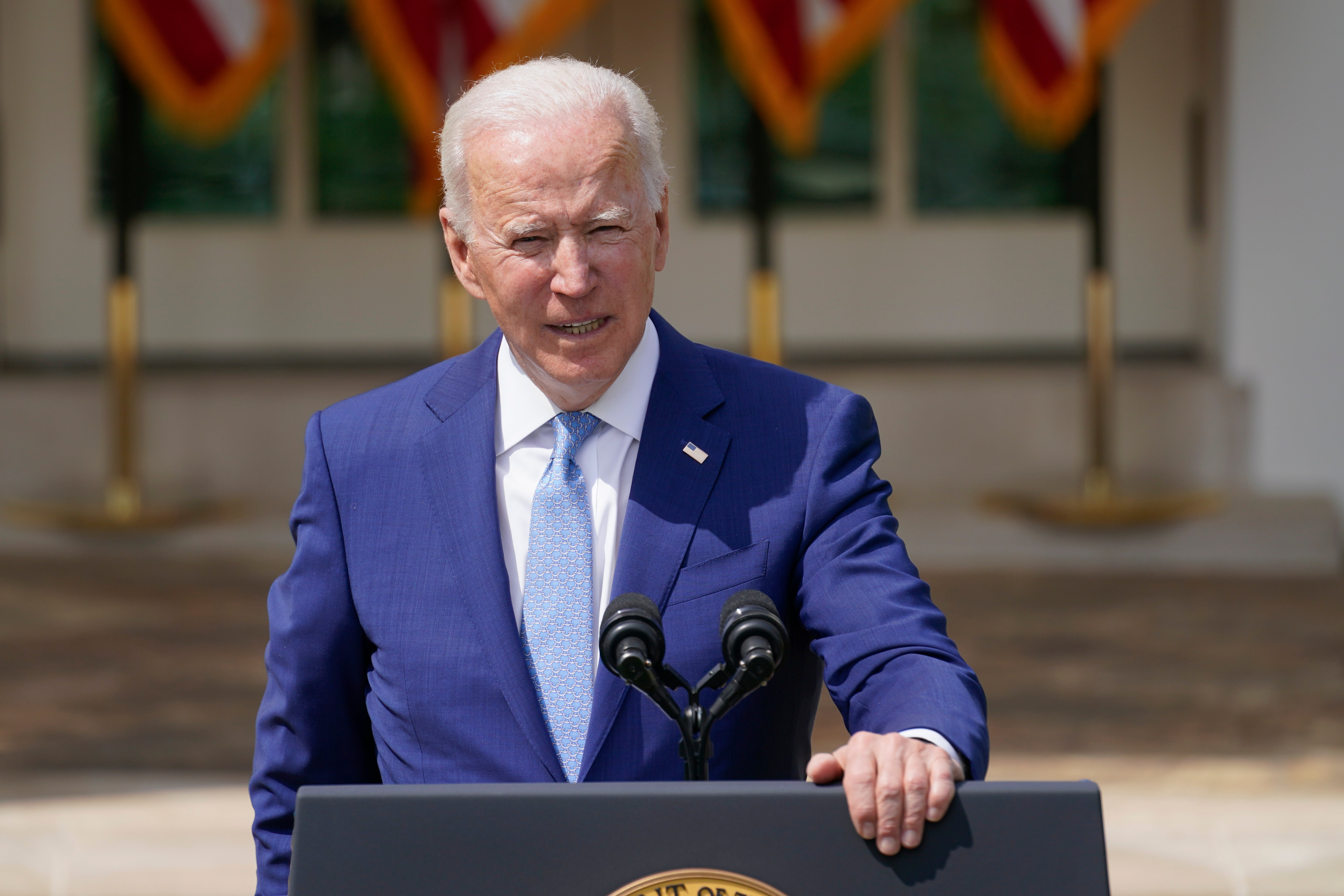Biden budget seeks more for schools, health care and housing
President Joe Biden is releasing his wish list for the federal budget

Your support helps us to tell the story
From reproductive rights to climate change to Big Tech, The Independent is on the ground when the story is developing. Whether it's investigating the financials of Elon Musk's pro-Trump PAC or producing our latest documentary, 'The A Word', which shines a light on the American women fighting for reproductive rights, we know how important it is to parse out the facts from the messaging.
At such a critical moment in US history, we need reporters on the ground. Your donation allows us to keep sending journalists to speak to both sides of the story.
The Independent is trusted by Americans across the entire political spectrum. And unlike many other quality news outlets, we choose not to lock Americans out of our reporting and analysis with paywalls. We believe quality journalism should be available to everyone, paid for by those who can afford it.
Your support makes all the difference.President Joe Biden released his wish list for the federal budget on Friday, asking for an 8.4% increase in discretionary spending with substantial gains for education, health care, housing and environmental protection.
The request issued by the White House Office of Management and Budget spells out Biden’s top priorities as Congress weighs its spending plans for next year. It’s the first financial outline of Democrats’ broader ambitions since the expiration of a 2011 law that capped discretionary spending.
Roughly a third of the huge federal budget consists of discretionary spending, which is funding for the military, foreign policy and domestic programs set by Congress. The rest of the budget involves mandatory spending that is locked-in each year, such as Social Security, Medicare and Medicaid
Biden, as vice president, helped strike the 2011 agreement with Kentucky Sen. Mitch McConnell who will be on the other side of budget talks again as the chamber's minority leader. The compromise was meant to reduce partisan gridlock over an increase to the government’s borrowing authority in return for deficit savings.
The Biden administration believes the caps caused a decade of severe underinvestment in public services that the president is now trying to turn around with large increases that would mostly bypass national security programs.
An administration official, speaking on condition of anonymity to discuss private conversations, said the request would bring spending in line with historic averages. It seeks $769 billion in non-defense discretionary funding, a sum the official said is equal to the 30-year average of spending relative to the overall U.S. economy.
Biden wants to increase the Education Department’s budget 40.8% to $102.8 billion, which includes an additional $20 billion in grants for high-poverty schools.
The Department of Health Human Services would get a 23.1% boost to $133.7 billion. There would be additional funds to combat opioid addiction and for the Centers for Disease Control and Prevention, whose mission took on new urgency in the aftermath of the coronavirus pandemic. The administration is also asking for $6.5 billion to establish a biomedical research agency to address cancer, diabetes, Alzheimer's and other diseases.
Biden is seeking a $14 billion increase across government agencies to address climate change. Housing and Urban Development would get a 15.1% increase to $68.7 billion, primarily to provide housing vouchers for an additional 200,000 families. The administration also seeks more money for civil rights enforcement addressing gun violence as a public health epidemic.
The plan also details how the Biden administration will try to deal with the influx of arrivals at the U.S. southern border. It includes $861 million to invest in Central America to address the forces driving people to migrate to the United States. An additional $345 million would go to immigration services to resolve delays in years-long naturalization and asylum cases. The budget for the Executive Office of Immigration Review would jump 21% to $891 million in order to hire 100 new immigration judges and support teams to reduce the existing backlogs.
The president seeks modest increases for national security. Defense -- the largest department in the discretionary plan -- would get a 1.6% increase to $715 billion. Homeland Security would edge up 0.2% to $52 billion.
Friday’s request does not include plans for tax revenues or mandatory federal spending. Nor does it include the planned spending in Biden’s infrastructure plan.